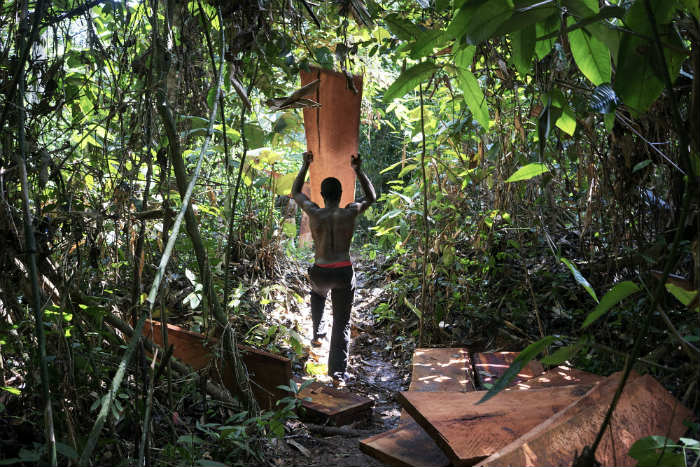By: Inga Vesper
Send to a friend
The details you provide on this page will not be used to send unsolicited email, and will not be sold to a 3rd party. See privacy policy.
[HONOLULU] The United Nations and other peacekeeping bodies should include an element of environmental protection and research in their efforts to pacify warring nations, a conference has heard.
By sharing responsibilities for protected areas and natural resources, such as forests and water sources, countries can be brought around the negotiation table to ensure lasting peace, scientists said during a panel session at the World Conservation Congress in Hawaii.
They explained that environmental resources are a neutral discussion ground because they offer plenty of space for collaboration, which makes flaring up of settled conflicts less likely.
“Uncertain rights and claims to resources create the potential for conflict, but they also provide a window of opportunity for discussion and reform,” said Carl Bruch, a law researcher at the UN Environmental Programme. “When countries emerge from war, people are willing to change practice.”
However, the panel acknowledged that resources can also be the source of tensions. “Scarcity and inequitable sharing can contribute to conflicts breaking out,” Bruch said.
At the event, which took place in Honolulu on 4 September, Bruch presented the UN’s Environmental Peacebuilding Knowledge Platform as a tool to educate peacekeepers about environmental issues. The panel agreed that this information can also be used to enshrine environmental protection in conflict law.
However, some audience members cast doubt on whether discussing environmental science for peacekeeping at such a high level will be effective. Peacekeepers on the ground need to be trained in environmental protection for this to succeed, says Khaled Ananzeh, a member of Jordan’s Environment Society.“This is crucial, but at the moment it is [nowhere to be] found,” he told SciDev.Net “The peacekeeper induction course covers everything, but not the environment."
“Uncertain rights and claims to resources create the potential for conflict, but they also provide a window of opportunity for discussion and reform.”
Carl Bruch, a law researcher at the UN Environmental Programme
The conference heard that the environment suffers severely during conflicts — forests are burned to make way for military stations, water resources are destroyed and habitats along borders become havens for refugees. “Now that a lot of countries are emerging from conflict we need to engage in lasting peacebuilding, and restoring the environment is a crucial part of this,” says Bruch.
Forests and water sources are particularly good for supporting peace agreements, according to experts at the event. Arnold Kreilhuber, a lawyer at the UN’s Division of Environmental Law and Conventions, says successful water sharing agreements — such as a deal among the South African Development Community and the Guarani Aquifer System in South America — could serve as models for other efforts to research and protect natural resources.
Kreilhuber says that seeing water resources as cross-border entities whose importance goes beyond national jurisdiction has helped countries emerging from conflict in Africa and South America come together and take joint responsibility.
“Why don’t we try and [also] bring forests together like this,” Kreilhuber asked. “We should not chop up such resources according to national boundaries.”














